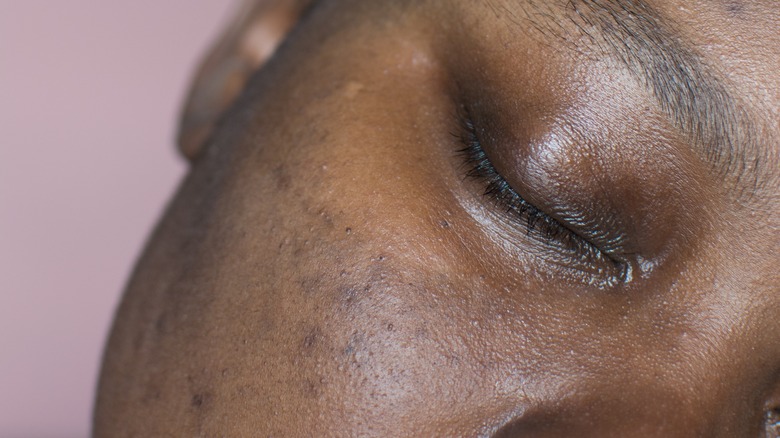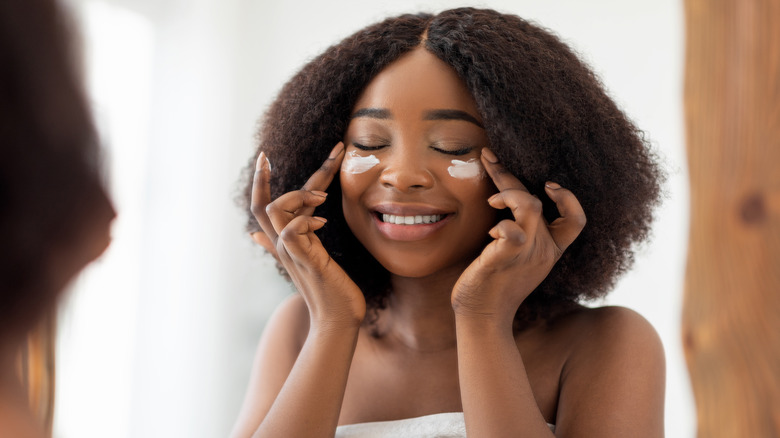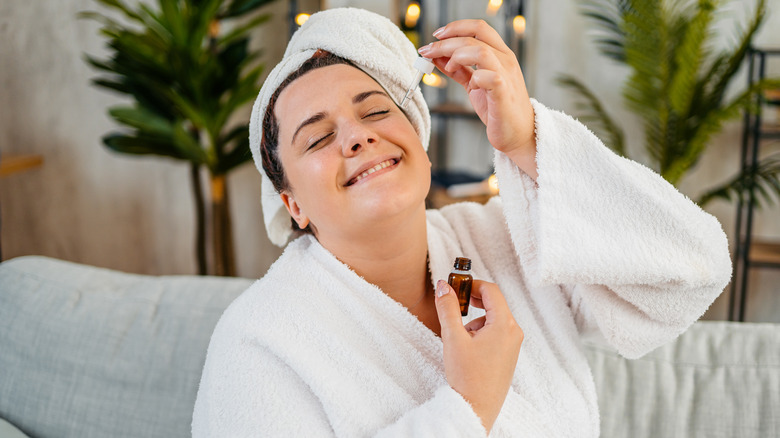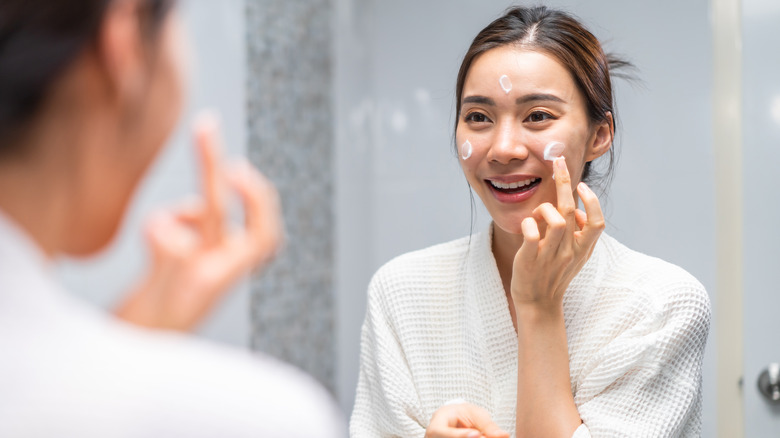The Best Ingredients For Treating Skin Hyperpigmentation
Hyperpigmentation is part of life. It doesn't matter the tone of our skin or how proactive we are in trying to keep it flawless, hyperpigmentation comes for everyone. "Hyperpigmentation is a common skin condition that can affect all skin types and all ages," general practitioner Anita Sturnham, MD told Byrdie. "Anything that causes inflammation in the skin can potentially send a signal to our melanocytes, the cells that produce brown melanin pigment as part of an immune response ... This inflammation can be caused by UV damage, acne spots and breakouts, harsh chemicals on the skin, and even hormonal fluctuations, such as those in pregnancy or when taking the contraceptive pill." In other words, it's pretty darn unavoidable.
But as much as we may not be able to stave off hyperpigmentation entirely, we can use products that contain ingredients that can drastically minimize it and prevent new patches from popping up. Sunscreen, of course, is a must when it comes to escaping hyperpigmentation, but it's certainly not the only product to keep on hand.
Acids
While the word "acid" on its own sounds a little intense, there are a handful of acids that are your BFF when it comes to managing and preventing hyperpigmentation: kojic acid, glycolic acid, salicylic acid, mandelic, malic acid, lactic acid, and azelaic acid. The first six ingredients are alpha hydroxy acids (AHAs) which are great for hyperpigmentation thanks to their exfoliating and collagen-boosting properties. "AHAs help even out skin pigmentation irregularities from melasma and post-inflammatory hyperpigmentation," dermatologist Morgan Rabach, MD told Allure.
Of those AHAs, the big standout for treating hyperpigmentation is kojic acid. "Unlike other acids that work by dissolving the bonds between the cells and exfoliating the skin, kojic acid works by inhibiting pigment production," board-certified cosmetic dermatologist Y. Claire Chang, MD told Byrdie. This is exactly what someone prone to hyperpigmentation wants: to inhibit it.
Another acid that's neither an AHA nor BHA is azelaic acid, which is effective because of its effect on skin discoloration. "Azelaic acid works as a tyrosinase inhibitor, which means it works to decrease the synthesis of melanin, the pigment in your skin," dermatologist Abigail Waldman, MD told Everyday Health.
Vitamins A, B3, C, and E
According to a 2020 study published in the Journal of Oral and Maxillofacial Pathology, vitamin C "inhibits melanin synthesis through downregulation of tyrosinase enzyme activity." In layperson's terms, where there's no activity, there's no melanin to cause hyperpigmentation. Vitamin C is also a strong antioxidant so it helps protect the skin from everything under the sun — literally.
Vitamin A is fantastic for encouraging faster skin cell turnover, leading to new cell growth which is paramount in getting hyperpigmentation up and on its way out. It helps the skin look brighter and more uniform in tone. Vitamin E, too, which is often used to help diminish scars, can help lighten dark spots on the skin. In fact, C and E together can be a game changer. "Vitamin C together with vitamin E also [have] strong antioxidant actions that can help reduce and protect the cells of the skin against future UV damage," aesthetic doctor Dr. David Jack told Harper's Bazaar.
Research has also found that vitamin B3 can be effective in fighting hyperpigmentation. According to 2002 research published in the British Association of Dermatologists, hyperpigmentation was "significantly decreased" in the study's participants who were given 5% niacinamide moisturizer, proving vitamin B3 (niacinamide) to be an essential ingredient in lightening skin discoloration.
Plant extracts
For those wanting something more natural and, ideally, less harsh, there are also botanical ingredients to look for when trying to ditch your hyperpigmentation. Licorice, for example, has been found to be an effective lightening agent, as have green tea and mulberry extract, as Dr. Jack told Harper's Bazaar.
Arbutin, too, which is derived from bearberry leaves and is the natural alternative to hydroquinone, but without the controversy or negative side effects, has shown to be an asset in the fight against hyperpigmentation. "The hydroquinone is released slowly, and skin is not exposed to too much of it at any time," board-certified dermatologist Annie Chiu, MD told Everyday Health. "This means that arbutin likely doesn't have the same levels of toxicity as hydroquinone." Hydroquinone is thought to be a possible carcinogen, so it's banned in parts of the world, including Europe.
While hyperpigmentation may not be anyone's friend and getting rid of it ASAP may be important to you, what should reign supreme is the health of your skin. So before you start adding all these ingredients to your beauty routine, talk to your doctor first. It's always best to get a professional's input on these types of things to make sure you're not concocting a recipe for disaster.



